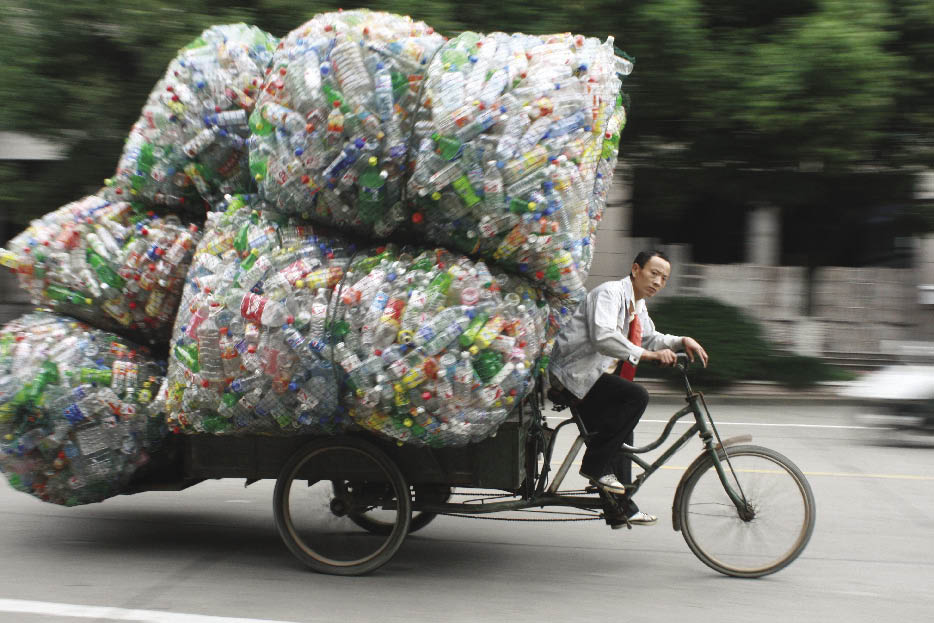One Man's Junk
Viewing garbage as a misplaced resource and a business opportunity
 |
| There’s a mountain of opportunity in garbage – a plastic specialist should know. |
A narrow path skirts the green belt along the Jingmi Canal and ends in a big courtyard one kilometer from the Summer Palace, a famous tourist attraction in Beijing. It seems to be a different world from what we find in other parts of the urban district. This courtyard is a junkyard. Various types of scrap are piled in rows scores of meters long: old furniture, old garments, old electric appliances, scrap paper, scrap metals, and plastic bottles. Men are patiently sorting the waste out while children play games nearby, and women are rinsing clothes or vegetables at a public faucet. Everything is so quiet and peaceful.
Beijing has hundreds of thousands of such men and women, who come from other parts of the country to collect, sort and sell waste materials for recycling. It’s their livelihood. “Garbage is just a kind of misplaced resource. When fully utilized, it can serve profit-making and ecological interests,” said Wang Canfa, a professor of the China University of Political Science and Law. The principle is, one man’s junk is another man’s treasure.
Thriving on What Others Throw Away
The junkyard also incorporates the home of its owner Chen Liguo. He doesn’t strike you as a man whose family assets are worth RMB one million. On one side of the courtyard there is a row of old brick-and-tile one-story houses, used decades ago as winter storage for cabbage. The modest 20-square-meter room at the end of the row is divided into three parts: a narrow kitchen, the sitting room, and bedroom equipped with a television set.
Chen Liguo is native to Luohe City, Henan Province. Ten years ago his aunt came to Beijing and started collecting scrap. She saw the business was promising, and introduced her nephew to this trade. Soon he applied for a business license himself, rented this courtyard, and has sublet it to over a dozen tenants. The tenants now work under him and each specializes in one field, be it metals, plastic, rubber shoe soles, glass, paper packaging, furniture or timber.

